
Freedomway.ca
facebook.com/stefanaarnio
https://twitter.com/stefanaarnio
http://ca.linkedin.com/in/stefanaarnio
Remember: Please share this article if you found it enjoyable!
This morning I was having breakfast with a colleague of mine and we were trying to find ways to compliment each other's respective real estate businesses. Sometimes it can be difficult to find ways to compliment another person's business due to personal similarities or differences and we spent a considerable amount of time talking about our business philosophies and dreams.
My philosophy in business has predominately been: it is better to sell one $1,000 hot dog than sell one thousand $1 hot dogs.
Selling one hot dog for $1,000 makes much more money, requires less effort and has a completely different clientele and resources required to sell one thousand $1 hot dogs.
However, we don't often see any hot dog carts selling $1,000 hot dogs… Why?
Years ago on the Celebrity Apprentice, one of my business heros Gene Simmons sold a $5,000 hot dog to one of his friends for charity. The context of the sale was a battle between two teams of Celebrities to see who could raise the most money selling hot dogs for charity. The business models of the two teams varied greatly with one cart selling $5 hot dogs and the other cart selling $5,000 hot dogs. The results for the two teams was vastly different with the $5 hot dog making approximately $17,000 while the $5,000 hot dog made closer to $52,000.
All of the money was raised for charity and both teams were loaded with celebrities. Both teams did very well, but the huge difference in money raised was that one team was thinking bigger by asking for more dollars per hot dog.
Years ago when I was in the music industry, I wanted to find a way to do business in a bigger way. Naturally I got into real estate because in music I was selling hundreds of $1 "hot dogs" whereas in real estate I could sell a few $1,000 "hot dogs" and make a much better living. Real Estate in general when compared to a music business has much better margins, takes less time, less work and is much more sustainable because there is usually only one customer instead of 1000 for a similar profit.
After I had mentioned that I would rather sell one $1,000 hot dog, my friend replied that his philosophy has been to sell one thousand $1,000 hot dogs. He elaborated by saying that he was working on a multi-million dollar land subdivision deal where he would sell nearly 100 lots of land and metaphorically speaking sell one thousand $1,000 hot dogs. His thinking was clearly bigger than mine.
When we had met that morning, we were looking at a house that I was going to buy to flip. I had clearly illustrated my $1,000 hot dog thinking with my current business model of flipping houses one at a time. My colleague had a much greater plan to take the profits of my plan and multiply it by 100 with the same effort.
But what do the hot dogs mean?
There are two ways to build a business model. One is vertical and the other is horizontal.
HORIZONTAL BUSINESS - $1 hot dogs x 1000
A horizontal business will have lots of customers with low transaction volumes. The business relies on having a high amount of customers and transactions to make a profit. This is the hot dog cart with $1 hot dogs.
VERTICAL BUSINESS - $1000 hot dog x 1
The other model is the vertical model. This model has less customers, but makes more money per customer. It relies on having a few great repeat customers who account for 80% or more of the business. This is the model I am building in my business today. This is the hot dog cart with the $1,000 hot dogs.
DIAGONAL BUSINESS - $1000 hot dog x 1000
There is a third model, and this model is the diagonal model that uses both vertical and horizontal strategies where we sell $1,000 hot dogs to 1000 customers. This model is much more advanced and requires the customer care of the vertical model with the systems and velocity of the horizontal model. If you can build a diagonal model, you will be rich - guaranteed. However, this model is the most difficult to create and few people know how to actually build a horizontal business model that works.
After examining the $1 hot dog cart and the $1,000 hot dog cart, which hot dog cart would you like to own? Which cart are you running in your current business? Is this where you want to be today? What is holding you back from building a diagonal business?
Thanks for reading,
By: Stefan Aarnio
Freedomway.ca
facebook.com/stefanaarnio
https://twitter.com/stefanaarnio
http://ca.linkedin.com/in/stefanaarnio
P.S: Please share this article if you found it enjoyable!


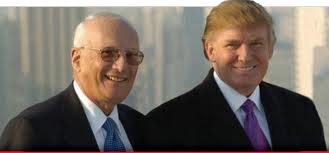
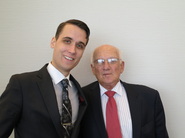
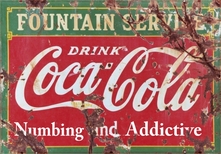

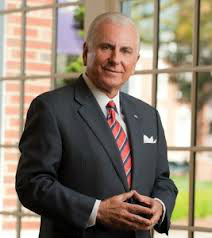

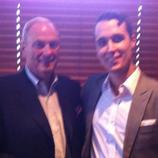
 RSS Feed
RSS Feed

